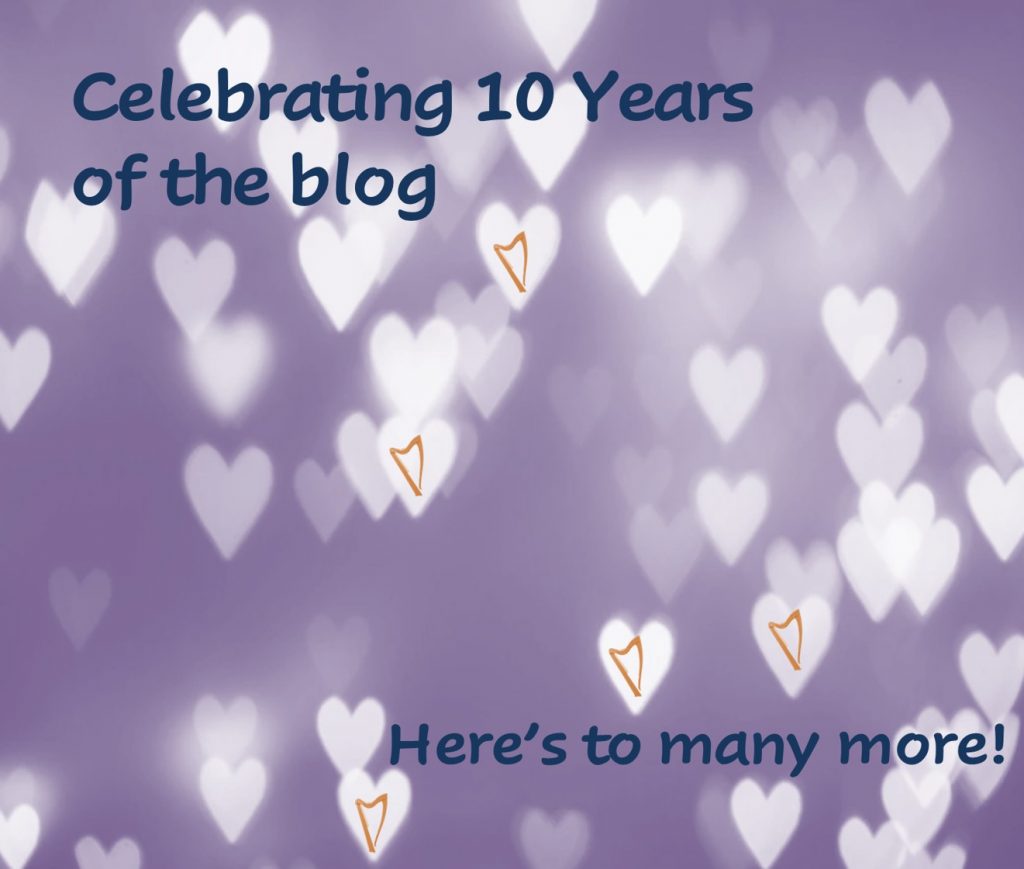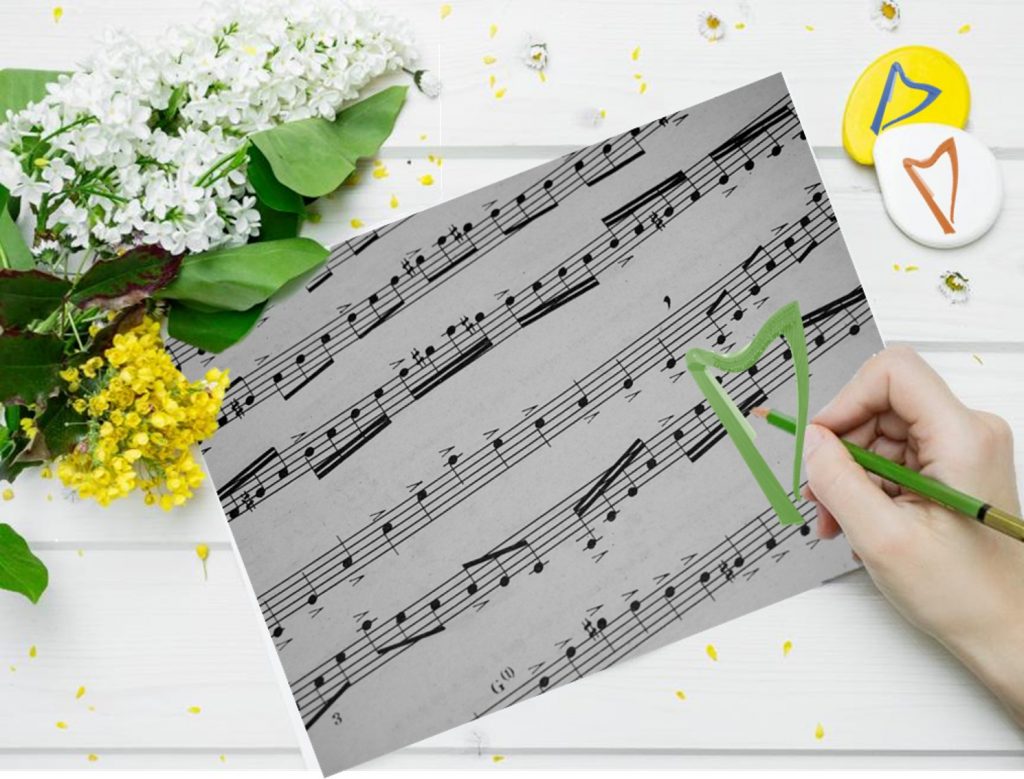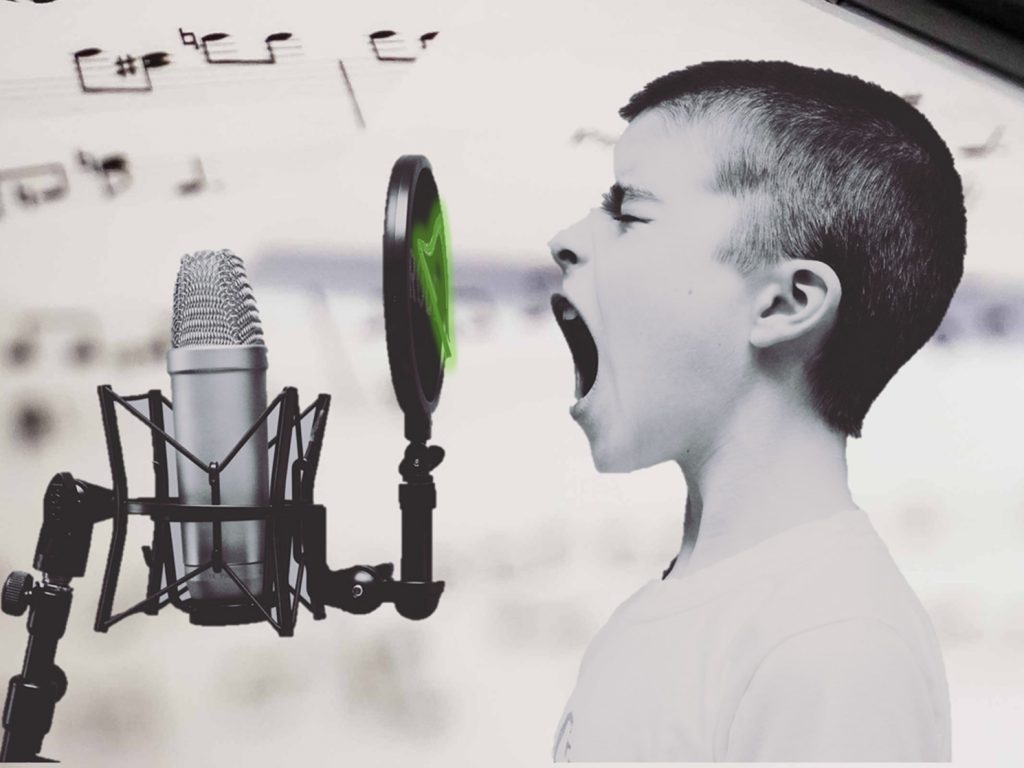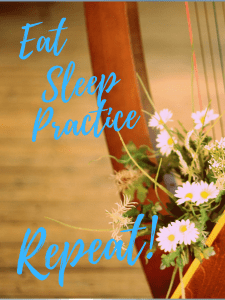It’s amazing to realize that I started writing this blog 10 years ago this week! The time has flown by. I started to blog to get the word out about the Harp the Highlands and Islands trips. And here we are, so much later, talking not only about the trips but also about becoming better harpers and learning stuff!
Have you ever wondered how the trips came about? Through serendipity of course!
My first trip to Scotland was to St. Andrews. I didn’t even play the harp then. The weather was horrible – grey, drizzly, much colder that I expected. And then – it snowed. And it was windy and the water looked angry and the beach was bleak – and I l-o-v-e-d it!!
 Over time, I went back to visit, getting a better appreciation for the varied areas. And the people, the geography, the history, and the sky – the breathtakingly, achingly beautiful sky! I had a favorite hotel, a favorite B&B, lovely friends to visit, etc. My favorite place was anywhere within 70 miles of the ocean*.
Over time, I went back to visit, getting a better appreciation for the varied areas. And the people, the geography, the history, and the sky – the breathtakingly, achingly beautiful sky! I had a favorite hotel, a favorite B&B, lovely friends to visit, etc. My favorite place was anywhere within 70 miles of the ocean*.
Then I began to play the harp, and after a few desultory attempts at celtoid music, my wonderful teacher gave me a gentle nudge that introduced me to Scottish music. And I found that it was quite possible that I loved the music even more than I loved the sky!
While at the Ohio Scottish Arts School one summer, it hit me (finally) that nearly all the tune names referred to real places, real people, real events. I had just seen Killiecrankie Leap – and was possessed with the need to play the tune Killiecrankie. It was while walking to a meal in Oberlin, Ohio that I was struck by how cool it would be to sit on that rock where the great leap occurred and play that tune!
I wanted to go to all the places and play all the tunes!!
That thought simmered for a few years. I had no idea how would I drag my harp along all those rivers, braes, burns, battlefields, towns’ streets, and through all those castles and stately homes!
In January 2009 I was invited by my dear friend David to play a Burns Supper. It was an incredible event and I thoroughly enjoyed myself. At the end of the trip, on the way to the airport as we chitchatted as friends do as their time together draws to an end and I shared my crazy idea to “play the harp at all the places” with him.
Well, he took those wisps of thoughts and crafted a trip that landed in some great spots by getting off the beaten track to show people Scotland unpackaged – the place I had come to love and not just some glossy brochure “Outlander” paper doll cut out! And he scheduled in time to play the harp – every day! I put together arrangements of tunes that fit the itinerary (and a few extras, just in case) and the trip was born!
We focused on very small groups in a highly curated approach to travel (and we still do). David is an amazing host. I got to meet harpers I would not know otherwise and share tunes I love in locales I adore.
In 2020, we’ll celebrate our 10th year of sharing with you! Perhaps the highest complement is how many people have come back to travel with us repeatedly. In the digital age, I know I should have more photos, but I’m usually too busy being in the moment, sharing with new friends, or making music to take too many photos, but others have done a great job. In addition, our 2020 trip is sold out already! Thank you for joining us!
We’ll keep at it as long as we’re having fun. If you’ve missed us for our 10th year but you want to come along, leave me a comment and I’ll add you to my contact list for the next trip. And lift your metaphorical glass – to our anniversary!
* FYI, no part of Scotland is 70 miles from the ocean!


